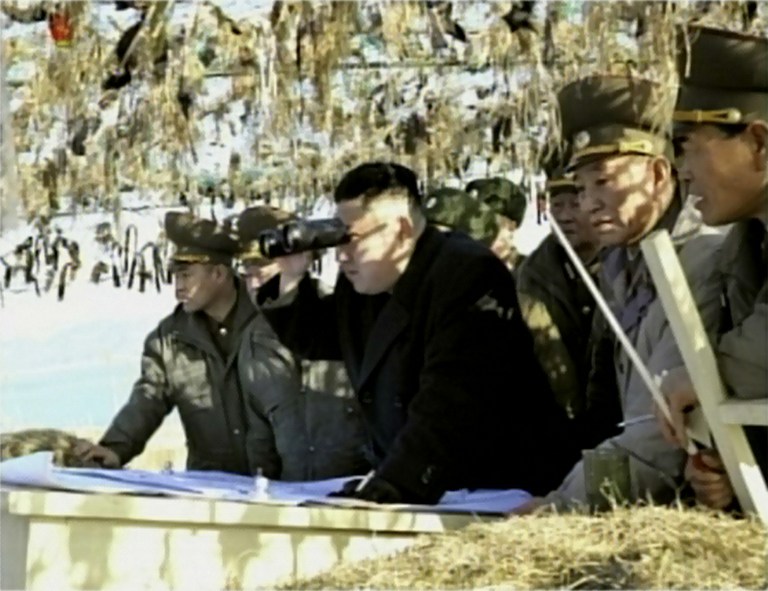SUMMARY
This is AI generated summarization, which may have errors. For context, always refer to the full article.

SEOUL, South Korea – North Korea confirmed Wednesday, March 13, that it had shredded the 60-year-old armistice ending the Korean War, and warned that the next step was an act of “merciless” military retaliation against its enemies.
A lengthy statement by the North’s armed forces ministry added to the tide of dire threats flowing from Pyongyang in recent days that have raised military tensions on the Korean peninsula to their highest level for years.
The statement carried by the official Korean Central News Agency argued that the real “warmongering” was coming from the United States and its “puppets” in Seoul.
“They would be well advised to keep in mind that the armistice agreement is no longer valid and (North Korea) is not restrained by the North-South declaration on non-aggression,” a ministry spokesman said.
“What is left to be done now is an action of justice and merciless retaliation of the army and people” of North Korea, the spokesman said.
The North announced last week that it would nullify the 1953 armistice and peace pacts signed with Seoul in protest over joint South Korea-US military maneuvers that began on Monday.
Because the Korean War was concluded with an armistice rather than a peace treaty, the two Koreas have always remained technically at war.
Voiding the ceasefire theoretically opens the way to a resumption of hostilities, although observers note this is far from the first time that North Korea has announced the demise of the armistice.
The armistice was approved by the UN General Assembly, and both the United Nations and South Korea have repudiated the North’s unilateral withdrawal.
“The terms of the armistice agreement do not allow either side, unilaterally, to free themselves from it,” said UN spokesman Martin Nesirky.
The North has also threatened to launch nuclear strikes against the United States and South Korea in response to fresh UN sanctions adopted after the North carried out its third nuclear test last week.
While the threats have been mostly dismissed as bluster, there are strong concerns that the North will attempt some form of military provocation in the coming weeks.
The South’s Yonhap news agency on Wednesday quoted a senior military source as saying sorties by North Korean fighter jets in recent days had reached “unprecedented” levels, with around 700 counted on Monday alone.
As well as nullifying ceasefire agreements, the North severed a Red Cross hotline that was one of the few means of communication between Pyongyang and Seoul, which do not have diplomatic relations.
However, a spokeswoman for the presidential Blue House in Seoul said a military hotline was still operating.
“The military communication is working normally and we will seek to convey any message to the North via the channel when necessary,” she said.
Wednesday’s statement by the armed forces ministry was notable for carrying the first official criticism of South Korea’s new president, Park Geun-Hye, since she took office a little more than two weeks ago.
While the spokesman did not mention Park by name, he said the “frenzy” stirred up the “warmongers” in South Korea was orchestrated by the “swish of the skirt made by the owner of Chongwadae (the Blue House).”
He also slammed Park’s recent comments that the North’s obsession with nuclear weapons would bring about its own collapse as “utter ignorance” and an echo of the “confrontational” policy of Park’s predecessor Lee Myung-Bak.
Park had campaigned on a pledge of greater engagement with North Korea, but February’s nuclear test put any rapprochement on indefinite hold. – Rappler.com
Add a comment
How does this make you feel?










There are no comments yet. Add your comment to start the conversation.